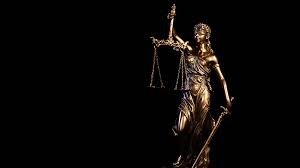Before adverting to the controversy directly involved in these appeals we may have a fresh look on the inter se functioning of the three organs of democracy under our Constitution. Although the doctrine of separation of powers has not been recognized under the Constitution in its absolute rigidity but the constitution makers have meticulously defined the functions of various organs of the State. Legislature, executive and judiciary have to function within their own spheres demarcated under the Constitution. No organ can usurp the functions assigned to another. The Constitution trusts to the judgment of these organs to function and exercise their discretion by strictly following the procedure prescribed therein. The functioning of democracy depends upon the strength and independence of each of its organs. Legislature and executive, the two facets of people’s will, they have all the powers including that of finance. Judiciary has no power over sword or the purse nonetheless it has power to ensure that the aforesaid two main organs of State function within the constitutional limits. It is the sentinel of democracy. Judicial review is a powerful weapon to restrain unconstitutional exercise of power by the legislature and executive. The expanding horizon of judicial review has taken in its fold the concept of social and economic justice. While exercise of powers by the legislature and executive is subject to judicial restraint, the only check on our own exercise of power is the self imposed discipline of judicial restraint.
18. Frankfurter, J. of the U.S. Supreme Court dissenting in the controversial expatriation case of Trop v. Dulles (1958) 356 US 86 observed as under:
All power is, in Madison’s phrase, of an encroaching nature. Judicial powers is not immune against this human weakness. It also must be on guard against encroaching beyond its proper bounds, and not the less so since the only restraint upon it is self restraint….
Rigorous observance of the difference between limits of power and wise exercise of power-between questions of authority and questions of prudence-requires the most alert appreciation of this decisive but subtle relationship of two concepts that too easily coalesce. No less does it require a disciplined will to adhere to the difference. It is not easy to stand aloof and allow want of wisdom to prevail to disregard one’s own strongly held view of what is wise in the conduct of affairs. But it is not the business of this Court to pronounce policy. It must observe a fastidious regard for limitations on its own power, and this precludes the Court’s giving effect to its own notions of what is wise or politic. That self-restraint is of the essence in the observance of the judicial oath, for the Constitution has not authorized the judges to sit in judgment on the wisdom of what Congress and the Executive Branch do.
19. When a State action is challenged, the function of the court is to examine the action in accordance with law and to determine whether the legislature or the executive has acted within the powers and functions assigned under the constitution and if not, the court must strike down the action. While doing so the court must remain within its self-imposed limits. The court sits in judgment on the action of a coordinate branch of the Government. While exercising power of judicial review of administrative action, the court is not an appellate authority. The constitution does not permit the court to direct or advise the executive in matters of policy or to sermonize qua any matter which under the constitution lies within the sphere of legislature or executive, provided these authorities do not transgress their constitutional limits or statutory powers.
Asif Hameed v. State of Jammu and Kashmir and Others, AIR 1989 SC 1899 : (1989) 2 JT 548 : (1989) 1 SCALE 1547 : (1989) 2 SCC 364 Supp : (1989) 3 SCR 19,





